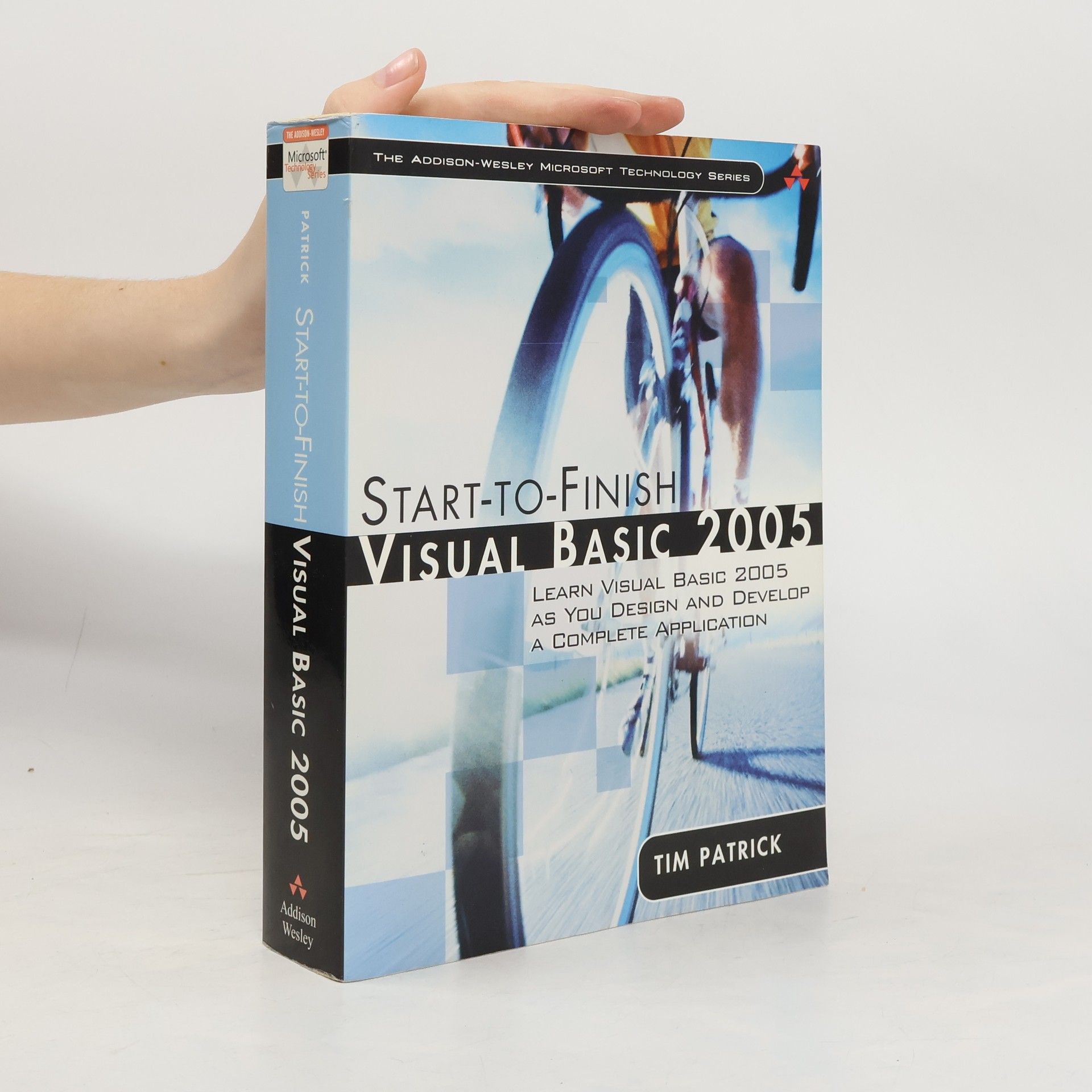Start-to-finish Visual Basic 2005
Learn Visual Basic 2005 as You Design and Develop a Complete Application
- 888 pages
- 32 hours of reading
Provides information on building data-driven applications using Microsoft Visual Basic 2005.
Tim Patrick is an author whose work spans both software and history. His extensive writing primarily covers technology, but his engagement with history and commentary on current events and books through the Well-Read Man Project suggests a broader intellectual scope. Patrick's expertise in software architecture intertwines with his passion for knowledge and historical exploration.


Learn Visual Basic 2005 as You Design and Develop a Complete Application
Provides information on building data-driven applications using Microsoft Visual Basic 2005.
Evidence from the Doctrinally-Binding Formularies of Faith, 1534-1571
In surveying the authorised doctrinal works of the English church through the Reformation period, the progress of eschatological thinking is traced from the earliest days of change to the solidification of the formularies which remain binding across the worldwide Anglican Church today. Inhaltsverzeichnis Introduction 1. Doctrine for the Divines under Henry VIII and Edward VI: Articles of Religion 2. Protestantism for the People under Henry VIII and Edward VI: Bibles, Paraphrases, Homilies, Bidding Orders, Lectionaries, and the Books of Common Prayer 3. Private Protestantism under Henry VIII and Edward VI: Catechisms and Primers 4. Doctrine for the Divines under Elizabeth I: Articles of Religion, with a note on the Act of Supremacy, the Injunctions, and the Canons 5. Protestantism for the People under Elizabeth I: Bishops' Bible, Homilies, Book of Common Prayer, and Acts and Monuments 6. Private Protestantism under Elizabeth I: Catechisms and Primers. Conclusions